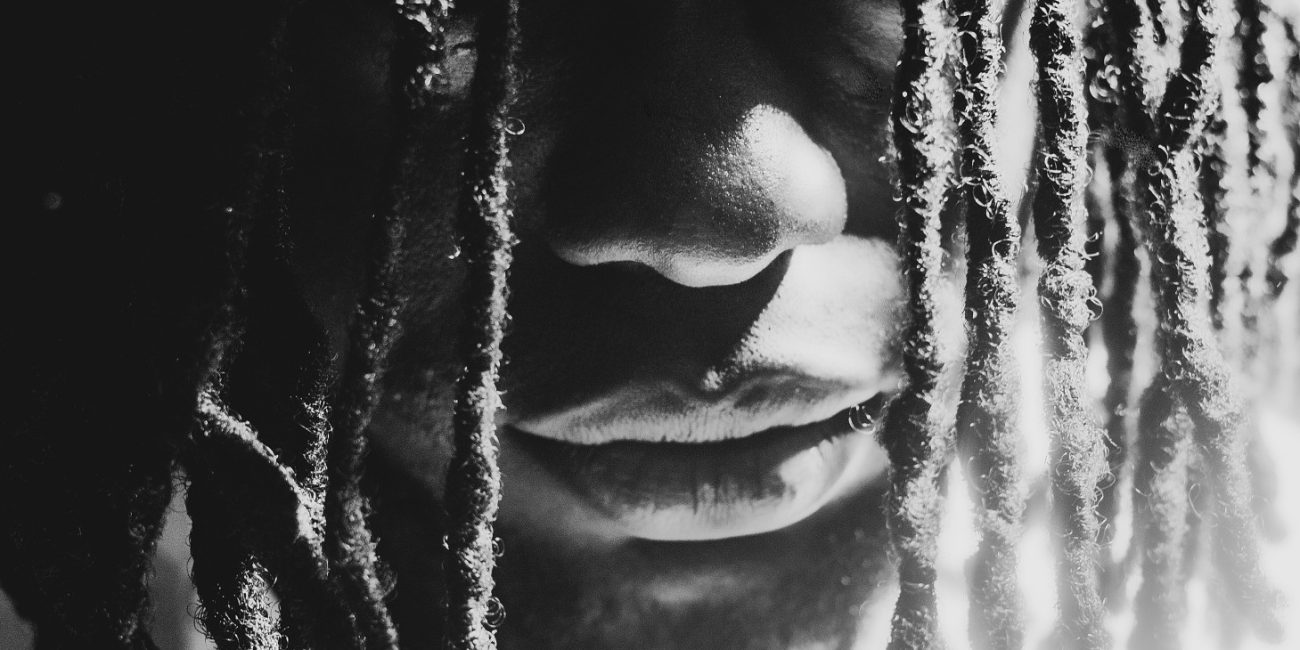
Temitope Dada: DaBest Is Redefining Commercial And Documentary Storytelling.
Temitope Dada, known as DaBest, is one of Nigeria’s finest exports in filmmaking, cinematography, and creative direction. He is the mastermind behind the DaBest trademark, a name synonymous with high-quality visuals and storytelling that drive action. Whether working on multinational campaigns or local briefs, his global-thinking approach ensures that his work stands the test of time, quality, and international standards to compete globally..
“I like to approach my work in a way that, if presented anywhere in the world, it will still hold its own,” he says.
The lack of specialists in documentary filmmaking and commercial production led him to establish his cinematography school, which now marks its 10th anniversary. His journey from financially supporting himself in school to becoming a full-fledged industry leader is a remarkable journey that inspires both older and younger generations is a testament to his resilience and passion.
He holds fond memories of commercials from his childhood, particularly the Blue Band and Indomie Adverts, but he isn’t interested in recreating nostalgia. Instead, he’s always on the go, brainstorming new ideas, carefully planning each project, and taking his time to ensure excellence. While he hopes to create a short film in the future, for now, he takes each day as it comes, putting in his best and striving for bigger opportunities. He jokes that his ultimate sign of retirement would be an Apple collaboration.
When asked about his definition of mastery, he responds sharply: “Mastery to me is repetition. It’s not perfection, but consistency.”
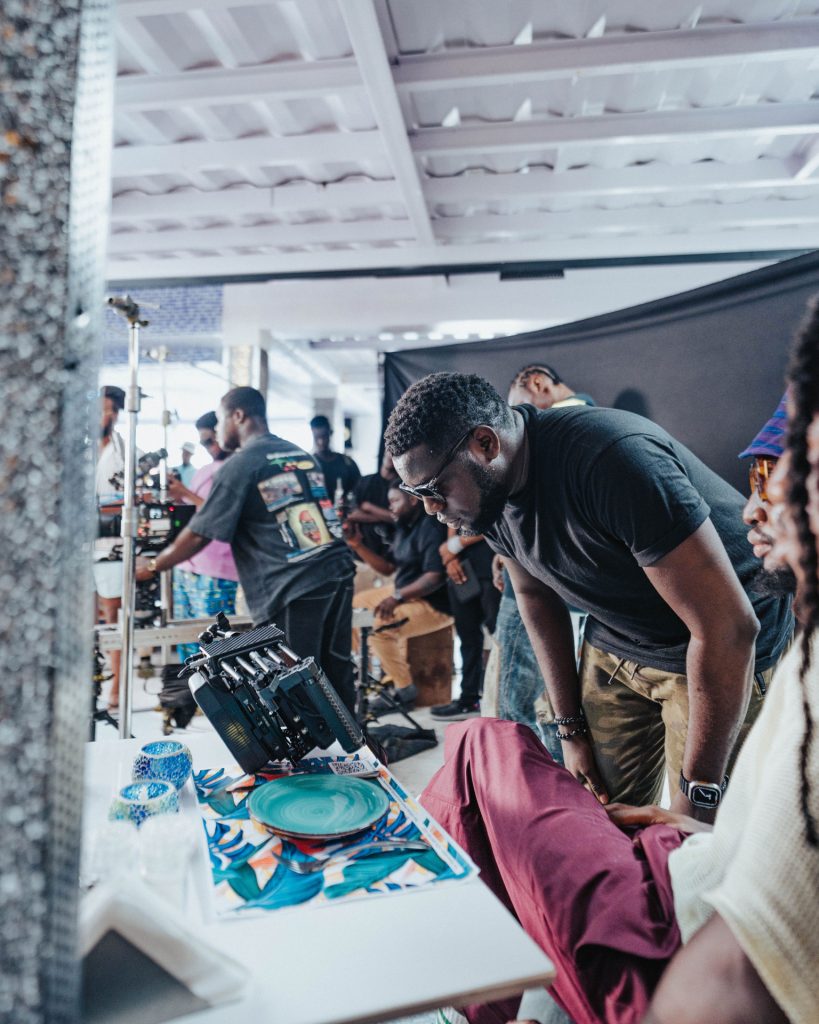
What sparked your passion for cinematography and filmmaking, and how did you turn it into a career?
I was in school and needed financial assistance. At some point, I realized I could take it full-time as a career. So, what started as survival became my passion.
How has working with multinational brands shaped your approach to storytelling?
I won’t say shaped, however, it has helped me deeply understand storytelling because, as a creative and storyteller, there’s more to it than just the artistic side. Since it’s an advert and not a film, the goal is not just to sell emotion but to sell a product. Brands are intentional about conversion. What’s the ROI? Is the ad leading to profit and gains for the company? Working with multinationals has helped me incorporate marketing into my creative process. It’s not just about storytelling but also understanding marketing psychology, sales, and revenue generation.
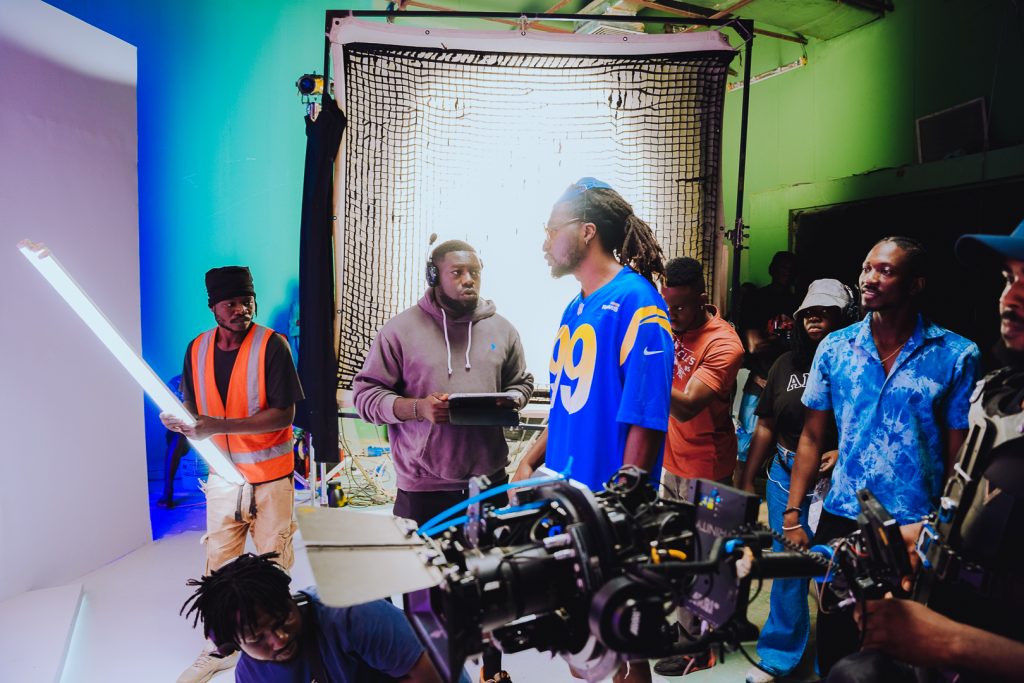
What makes your filmmaking style unique, and how do you ensure each project leaves a lasting impact?
My approach to storytelling is unique because I am highly detailed. It’s more than just aesthetics for me. I ask: Is this necessary? Does it elevate the story? My work is at par with global standards because I adopt an international approach to quality and storytelling.
I also never downplay the pre-production process. I’m very process-driven. Before we get on set, a lot of planning has already gone into the work. Proper planning makes execution easier and ideas come together cohesively. Intentionality is the driving force.
What’s your process for creating a project from concept to completion?
The story has to align with the brand. We ask ourselves: Does this align with our vision? Are we excited about it? Money alone isn’t enough motivation. Building a reputable brand takes more than just the pay, it requires seeing the bigger picture. We also consider the timeframe to execute an excellent job and the financial aspect before pre-production. Once all of that is settled, shooting goes smoothly.
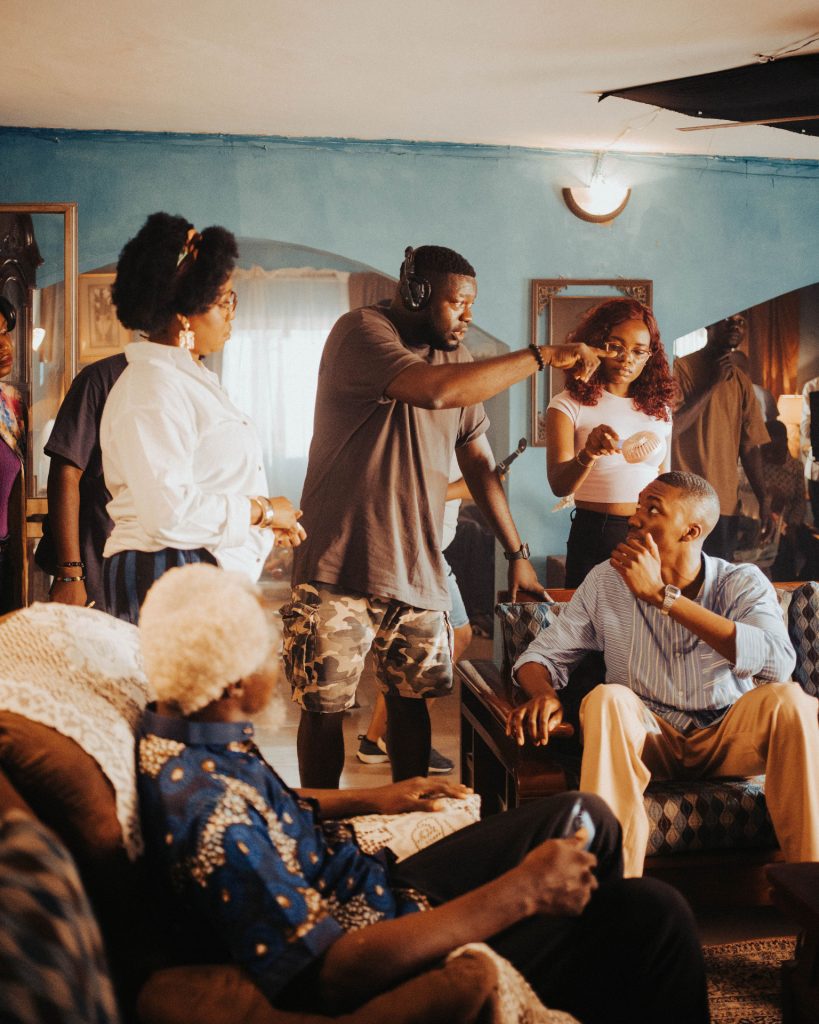
What’s the biggest challenge you face, and how do you overcome it?
Every project comes with its challenges. Initially, things were much tougher because, at the time we started, many departments within Nigerian filmmaking were standalone. One person would act as the director, producer, and DP. When we came in, we introduced structure, ensuring different specialists handled various roles. That transition was challenging, but over time, we’ve built strong departments where people take initiative and contribute exceptionally to the overall progress of a project.
Why do you think it’s important to teach aspiring filmmakers, and what do you hope they take from your classes?
From the start of my career, I’ve been interested in building systems and the people who facilitate them. If we’re going to demand more, both in terms of financial investment and industry relevance, we need a strong foundation. That’s why I started teaching. I want to impact people so we can collectively raise our standards.
One of my favorite aspects of teaching is the opportunity to build a community. Many filmmakers struggle with finding a support system, but through classes like mine, students have that from the jump. They have people to collaborate with and share challenges. This year marked the 10th edition of the class, and we’ve had many success stories. We are planning to host a portfolio review on May 1st, where established professionals critique selected works. It’s all about building a community and fostering growth.
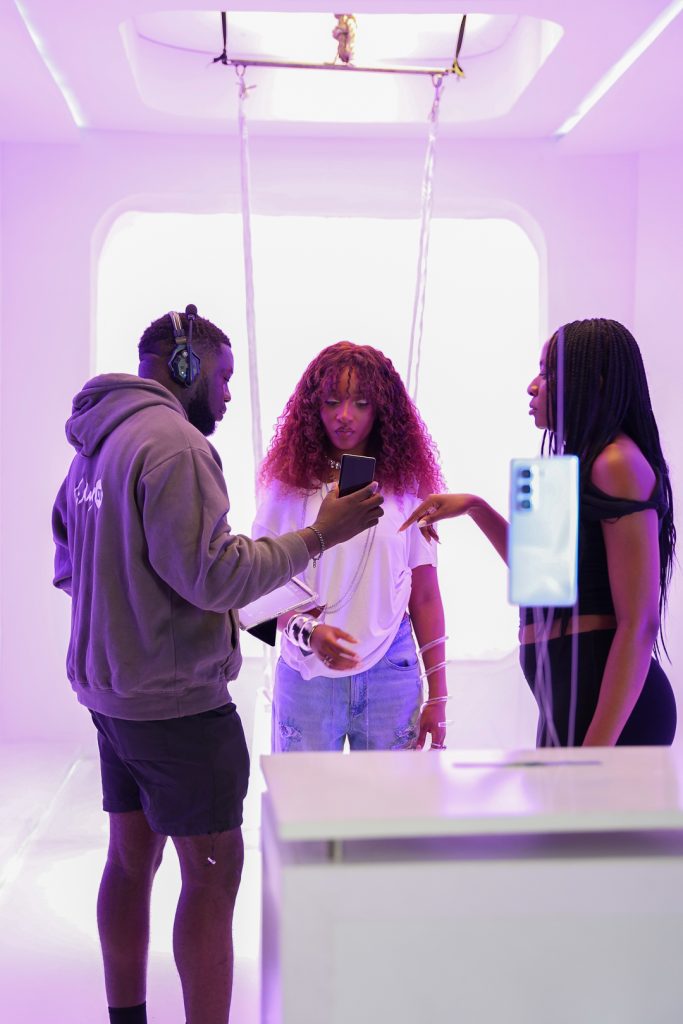
What advice do you have for young filmmakers looking to find their purpose through their work?
Two things: First, the name of my class says it all. Shoot. Edit. Repeat. Just like they say about spiritual growth, pray and read your Bible daily. Mastery comes from repetition. You can’t network your way to mastery; you have to put in the work. Keep shooting, editing, and repeating the cycle until you become a master.
Second, don’t get into filmmaking solely for financial rewards. Yes, it’s a viable career path, but passion has to drive you. If your only goal is to make money, there are easier ways to do that. You need to love the craft because that’s what will keep you going.
What legacy do you want to leave in the industry, and what goals are you still working toward?
I want to train at least 1,000 people and have them say they found their process through me, no matter what filmmaking field they venture into.
How do you stay inspired and motivated to keep growing in your career?
There’s a quote from Steve Jobs that has stuck with me since the beginning of my career: Stay hungry. Stay foolish.
I always stay hungry for knowledge. I make it a goal to learn at least one new thing daily. Staying foolish means acting like I don’t know everything; it keeps me open to learning and pushing boundaries.
DaBest isn’t just making films, he’s setting a blueprint for excellence. With an eye for detail and a passion for storytelling, he proves that mastery is built through consistency, creativity, and an unwavering commitment to growth.